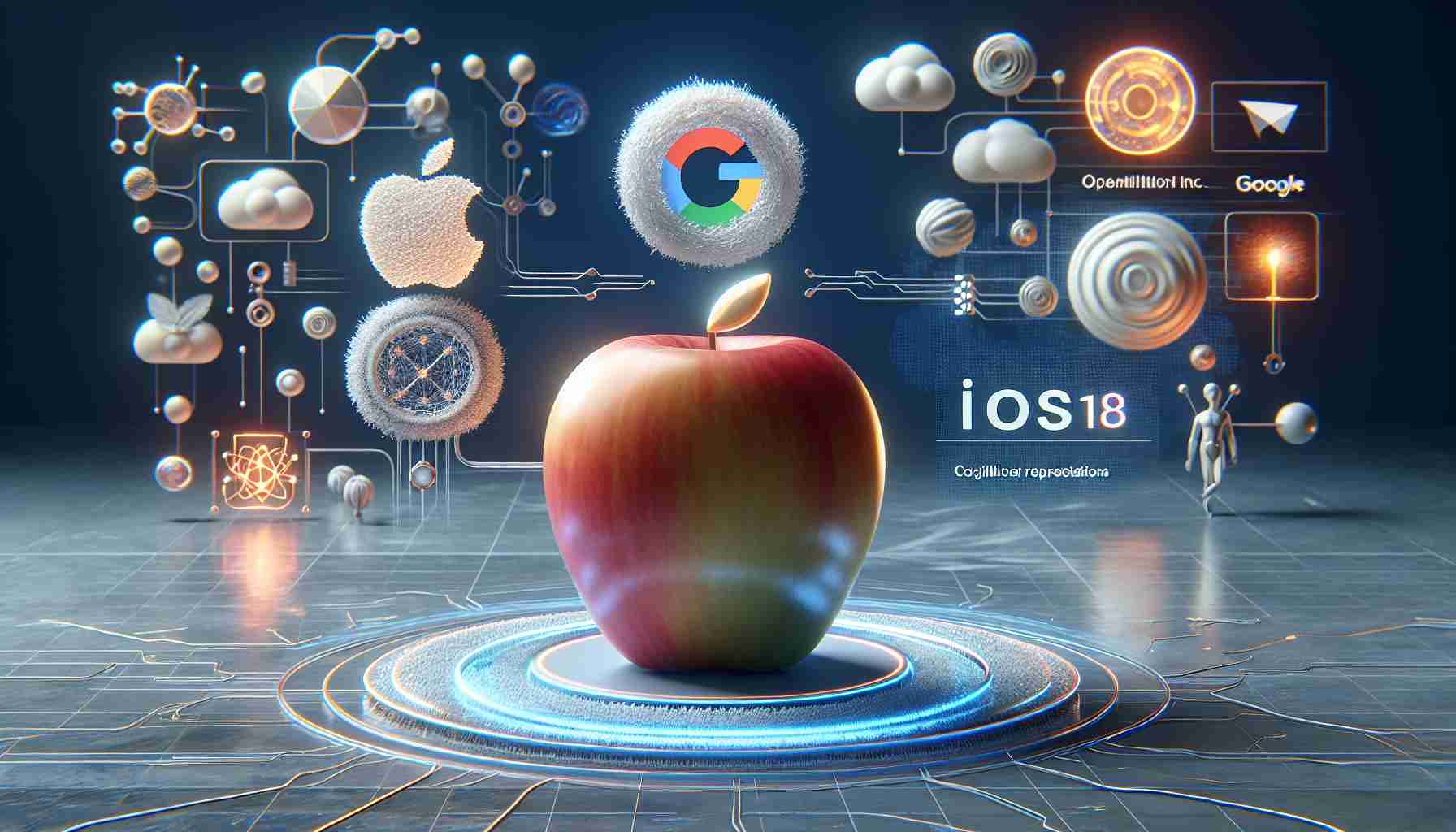Building the Foundation of AI in iOS
Apple is taking significant strides to enhance its mobile operating system with the power of AI through strategic discussions with OpenAI, the creators of ChatGPT. Recognising the need to catch up with competitors in the generative AI market, the tech giant is positioning itself to make substantial updates to its flagship product, the iPhone.
Pushing the Envelope with iOS 18
In a move to secure its position in the AI race, Apple is in conversations with both OpenAI and Google. The aim is to leverage their technology within the forthcoming iOS 18, anticipated for release in the fall of 2024, to introduce advanced AI features. At the same time, the company remains engaged with Google to potentially make use of Gemini, a lesser-know aspect of the negotiations.
The Pressure to Innovate
Apple’s endeavors in generative AI have lagged behind, but the urgency from within the company and the push from investors to make a mark in this thriving sector is palpable. Despite the company’s stagnant share price—where Microsoft has recently outpaced Apple in market capitalization due to its AI ventures—Apple is set on making iOS 18 the most transformative update ever, incorporating generative AI capabilities. As part of this effort, Apple is acquiring startups with specialized technology.
The Road Ahead Is Flexible
While Apple is developing its own language model to power the new features in iOS 18, the talks with OpenAI and Google focus on a chatbot/search feature integration within the OS. The outcome of these discussions remains open, with options to collaborate with either or both companies or to proceed independently.
Upcoming AI Announcements and Products
Apple’s major announcements regarding AI are scheduled for June 10 at the annual WWDC, the developer conference. The company has already hinted at its AI direction with the launch of the new MacBook Air M3, touting it as the “world’s best consumer laptop for AI.” Additionally, the forthcoming iPad Pro, expected later this year, is poised to become the company’s first device with a strong focus on AI, according to Mark Gurman.
Questions and Answers:
Q: What is the importance of AI integration in iOS 18?
A: The integration of AI in iOS 18 represents Apple’s commitment to keeping its products at the forefront of technology. It aims to enhance user experience by providing smarter, more contextually aware features, potentially transforming how users interact with their devices.
Q: What potential AI features could be introduced in iOS 18?
A: While the specifics are not detailed, plausible AI features could include advanced voice recognition, more contextual and personalized Siri interactions, improved photo and video analysis, real-time language translation, and predictive text and email responses.
Q: What are key challenges associated with AI integration in mobile OS platforms?
A: Key challenges include ensuring user privacy and security, managing the computational demands of on-device AI processing, and mitigating biases within AI algorithms. There is also the challenge of seamlessly integrating AI capabilities without impairing the user experience.
Challenges and Controversies:
1. Privacy Concerns: Integrating AI into the operating system could raise concerns about user data privacy, considering the need for large datasets for AI training.
2. Energy Efficiency and Performance: AI applications can be resource-intensive, so there’s a challenge in balancing advanced AI features with the power consumption and performance constraints of mobile devices.
3. Dependence on Third-Party Technologies: Collaborations with companies like OpenAI and Google could create a reliance on their technologies and standards, possibly affecting Apple’s control over its ecosystem.
Advantages and Disadvantages:
Advantages:
1. Enhanced user experience with smarter and more intuitive interfaces.
2. Potential improvements in device functionality, like real-time translation and advanced accessibility features.
3. Staying competitive in the technology market by incorporating cutting-edge AI.
Disadvantages:
1. Potential compromise on user privacy due to the data-hungry nature of AI.
2. Increased consumption of device resources could impact battery life and device longevity.
3. Possible over-reliance on partners like OpenAI and Google might constrain Apple’s independence in development.
Related Links:
– To learn more about Apple’s plans and products, you could visit Apple.
– For information on OpenAI and its AI initiatives, including ChatGPT, see OpenAI.
– Details about Google’s AI research and developments are available at Google.

